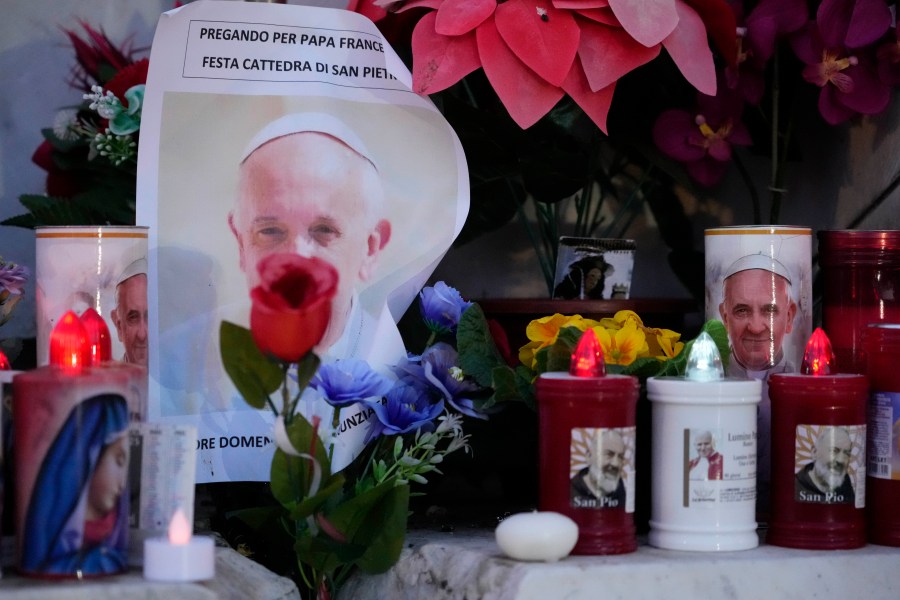(NEXSTAR) — Doctors revealed Sunday that blood tests for Pope Francis, the 88-year-old pontiff who has been hospitalized since Valentine’s Day after a weeklong bout of bronchitis worsened, show early kidney failure.
Every day, roughly 360 people in the U.S. begin treatment (either dialysis or a transplant) for kidney failure, according to the Centers for Disease Control and Prevention. A patient is considered to be experiencing kidney failure if under 15 percent of their kidney is “working normally,” the National Institute of Diabetes and Digestive and Kidney Diseases says.
Some of Pope Francis’ blood tests showed “initial, mild, kidney failure,” but doctors said it was under control. The Vatican did not provide any details about Pope Francis’ condition or what treatment, if any, he was receiving for his kidney failure.

There are some early warning signs of kidney failure — fatigue, nausea, vomiting, confusion, difficulty concentrating, swelling, change in urination frequency, cramps, dry skin, and food tasting metallic among them — but they may go unnoticed early on, per the Cleveland Clinic.
During kidney failure, one or both of a person’s kidneys will no longer function well on their own, the Cleveland Clinic explains. In some cases, kidney failure is temporary and develops quickly. In others, it can be a long-term condition that worsens over time.
Should the condition worsen, it can reach end-stage kidney disease, or ESKD. This stage, according to the Cleveland Clinic, is deadly without the proper treatment. With it, however, patients can “have a good quality of life while [they] manage kidney failure.”
While doctors did not indicate what may have caused Francis’ kidney failure, the National Kidney Foundation says diabetes and high blood pressure comprise roughly two-thirds of cases. Other potential causes include various forms of kidney damage and genetic disorders.
Those experiencing kidney failure may be at a higher risk of experiencing heart disease, stroke, and anemia, among other complications. Francis developed anemia and, during blood transfusions on Saturday, was given hematin, a treatment designed to increase the level of hemoglobin in his blood, which in turn helps the blood carry more oxygen. Doctors reported Sunday that the therapy had been beneficial.
The National Kidney Foundation notes that high blood pressure, heart disease, and stroke can both cause kidney disease and occur as a result of it.
There is no cure for kidney failure but treatment plans, medications, eating plans, and an active lifestyle can help those living with it, the National Institute of Diabetes and Digestive and Kidney Diseases explains.
The life expectancy of someone experiencing kidney failure can vary depending on “many things,” the American Kidney Fund says, including age and treatment plan.
The Vatican described Francis as remaining in critical condition but alert and “well-oriented” on Sunday, adding that he attended Mass. He had also not experienced any more respiratory crises since Saturday night but was still receiving high flows of supplemental oxygen.
“The complexity of the clinical picture, and the necessary wait for drug therapies to provide some feedback, dictate that the prognosis remains guarded,” Francis’ doctors concluded.
The Associated Press contributed to this report.












